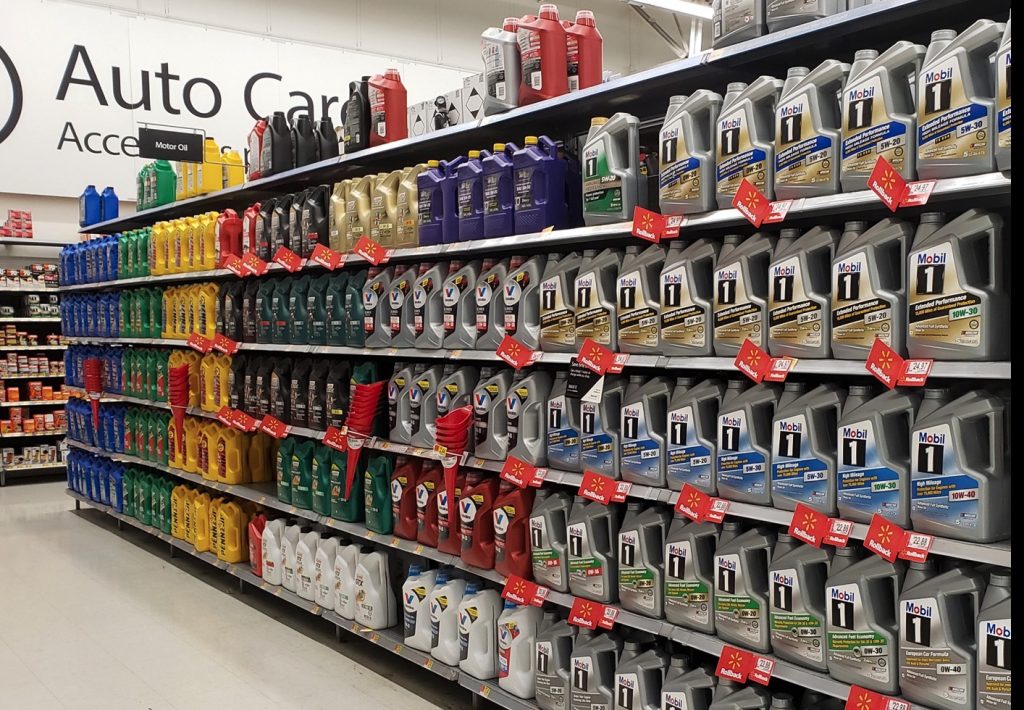
We should all eat better, get more quality sleep, exercise more, and moderate alcohol intake. That’s what our doctors and, more specifically, scientific data tell us so. This isn’t a guesstimate. We don’t seek medical advice from a guy with a bullhorn standing on a crowded street corner. And yet, I can admit I am partially guilty of that very thing by consuming and practicing advice given from online enthusiast forums and the like on decisions for my truck’s oil changes.
Why Data Matters With Oil
Now, before all you experts decry…..
“NOT ME! I’m smart and special! The engine oil gods bequeathed me with the magical gift to know exactly what’s best for my rig!”
It comes down to a single and simple word: DATA.
Without data on how the oil in your engine is performing, we’re all just guessing. And that’s kind of OK. The owner’s manual and the dealership service centers adhere to this guesstimating. History also says so. In fact, I feel that the entire consumer engine oil industry has curated its various billion-dollar business models on the very clear belief that most will guess on how to make decisions on engine oil.
But if you’re reading this, you’re not a typical automotive consumer… you’re a full-on fan boy, gearhead, Motörhead (RIP Lemmy), Toyota nut, etc. Thus, I believe you’ll enjoy the rest of this, as I promise you’ll learn something new, understand how to sift through all the online noise, and, at the very least, probably save money.
I had the privilege of interviewing one of the most legit sources of motor oil knowledge on the internet. This expert helped me achieve my goal, which is to avoid making another contribution to the ever-growing galaxies of online rhetoric and opinions.
Table Of Contents
Meet The Expert: Lake Speed Jr.
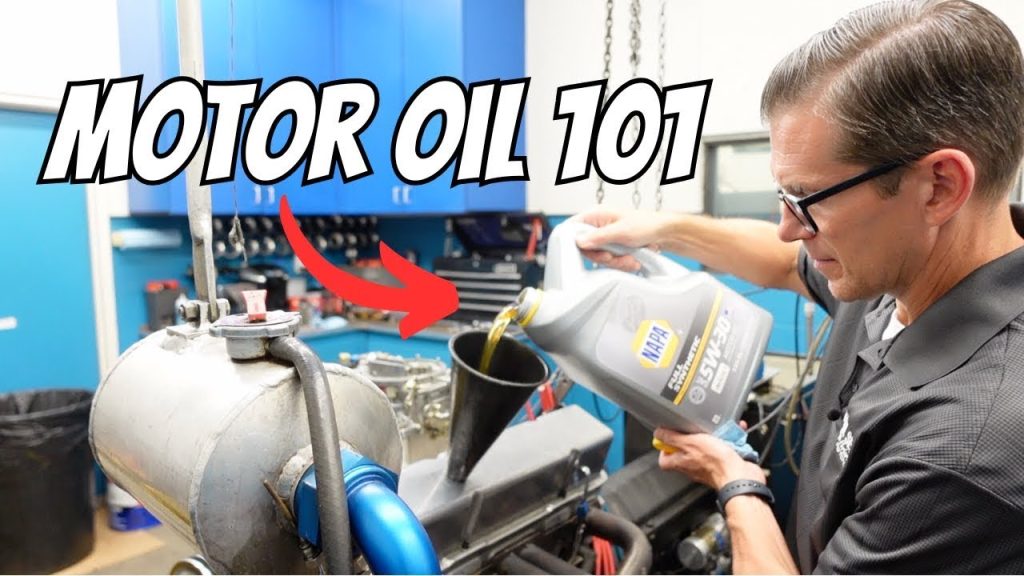
“Data is key to making any oil decisions”
-Lake Speed Jr.
Lake Speed Jr. is a Tribologist (look it up… I dare you) and a certified lubrication specialist with over 20 years of experience, including 13 years at Joe Gibbs Racing. Lake is the owner of SPEEDiagnostix.com, an express oil analysis company, whose clients include NASCAR and Formula 1 racing teams. This gentleman could be sworn in and utilized as an expert witness in any courtroom in the United States. He is both passionate and science-driven in his automotive enthusiasm. Still, more importantly, he has the street cred of applying “real-world science” to achieve his respective and proverbial 10,000 hours – shoutout M. Gladwell (who is also a car guy).
For starters, most people make their engine oil decisions based on brand loyalty and confirmation bias. The interweb says this….. ”Confirmation bias occurs when an individual looks for and uses the information to support their own ideas or beliefs. It also means that information not supporting their ideas or beliefs is disregarded.”
This pretty much sums up the oil change decisions of most U.S. consumers in a nutshell. If we ignore what we should do, and do what a handful of others tells us is safe or what the dealer says it recommends… it makes us feel warm and fuzzy. But the reality is that confirmation bias is further perpetuated by an engine that hasn’t failed, or is perceived to “run quieter”. We’ve all heard the claims of “Well, my Dad used X brand so that’s what I use,” or “I buy whatever is on sale or cheapest at XXMart,” or “the factory fill is XX”…..sound familiar?
However, if you want to be truly safe and obtain objective results, start by listening to Lake.
How To Approach Oil Changes The Right Way
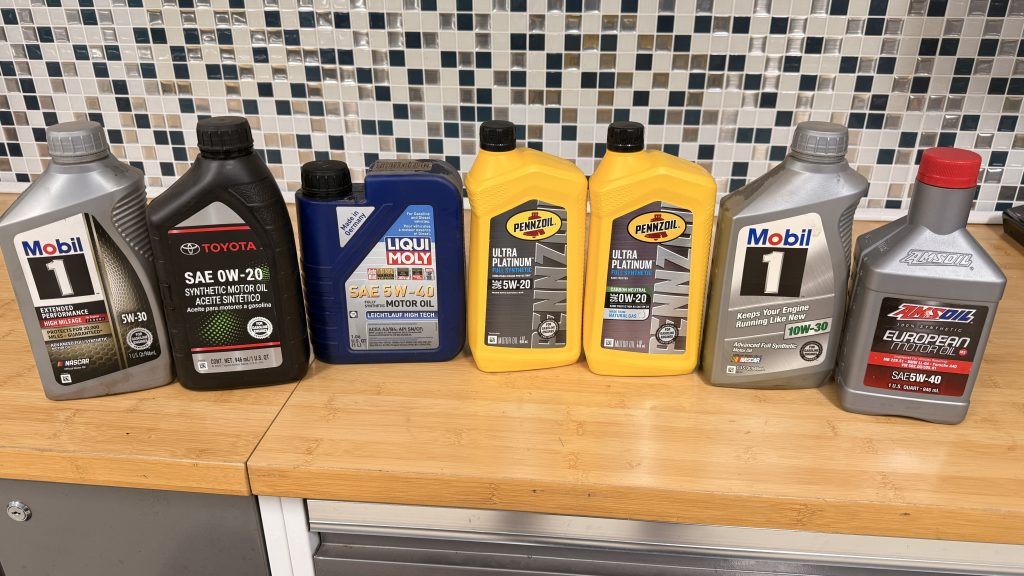
Oil Guidance
“I just bought a new 2025 Toyota Tacoma 4-cylinder turbo. I’m going to do the first oil change at 500 miles, with OEM Toyota full synthetic. Then again, at 2,000 miles, and again at 5,000. I will do used oil analysis at each oil change. Then, after 3-4 regular 5,000-mile oil change intervals, all with OEM oil and filter, make a change to another oil brand. Then, do another used oil analysis with the new brand. The data will show the comparison between the two oils, and that’s how I will base my decisions moving forward. Data is key to making any oil decision; anything else is purely speculation.”
But even this is a bit of an oversimplified statement, because Lake is also using his mountains of experience to digest the results of the used oil analysis. Lake abides by the rules of the 4 R’s of Proper Lubrication….
The Right Oil, in the Right Place, at the Right Time, and in the Right Amount.
Let’s break that down….
Right Oil
The viscosity/grade (and full synthetic). So, for most of us, that grade is 0W-20. Because that’s what the owner’s manual says, and that’s what’s on the cap of the oil filler hole thing… right? Got it. But not really….because that depends. As we know, an engine oil analysis is the only way to accurately determine the grade we should use based on the truck’s specific conditions and location, in real-life situations, not on the internet or the owner’s manual.
Right Place
Huh. I guess in my garage or the dealership? Those could both be wrong. Lake told me that the oil needs to reach the camshafts to lubricate them properly and prevent degradation. If the oil viscosity is too thick, it will not get to its right “place”. Another way I like to interpret it is Place = your geographic location in the world. And that’s because the environment, and more importantly, temperature and use, dictate and affect the degradation rate of the oil, the accurate oil grade you should use, and when to change the oil.
Listen, oil in a 4Runner in Phoenix, AZ, in January is not the same as oil in a 4Runner in Fargo, North Dakota, in January. Cold temperatures degrade oil integrity way faster than warm temperatures. That also applies to short drives in the winter in the Colorado Rockies, where the engine never really reaches operating temperature. Therefore, a thinner viscosity of oil or a lower grade should be used in geographic locations with colder ambient temperatures to get the correct place in the engine easily. This is one of a handful of variables that affect each other. But stay with me.
Right Time
When the engine parts are in motion, they require lubrication. Lake also told me that the oil needs to have access to the internal moving parts when they are moving. Therefore, if the engine oil can’t flow fast enough, then the engine can suffer. Lake told me, “The old school guys swore by 10W-40 in overhead cam engines and swore off 20W-50 because of this.”
Right Amount
6.6 quarts of 0W-20 for the 5th Gen 4Runner. Pretty simple. Don’t screw this up. But don’t worry, I have. The varsity move is to put the 6 quarts in, then check the dipstick so you don’t overfill, which I’ve done because I’m a know-it-all dummy.
Caveats: Why One-Size-Fits-All Doesn’t Work
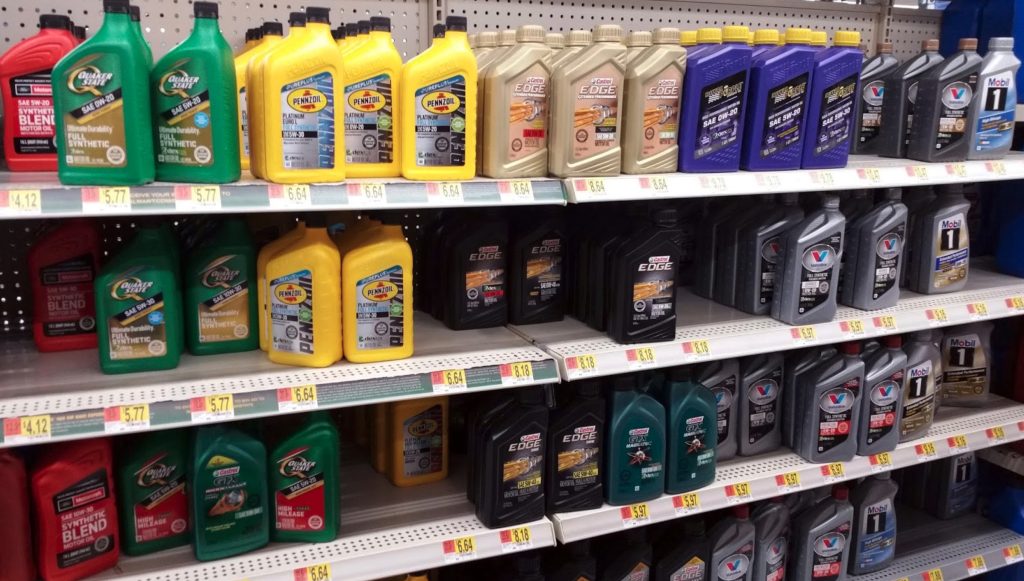
Here’s a little caveat to add to the four “R’s” above: your regional geographic location and whether your engine can properly take advantage of it… But the octane of the fuel you choose also matters. As gasoline is detonated in the engine to make the truck go zoom, it also affects the oil lubricity. Therefore, an engine oil with a minimum % or lower additive package may degrade faster with 87 octane than with 91 octane. In some geographic locations in the United States, that’s not a big issue.
However, due to state emissions requirements in the region of the Pacific Northwest, the lower octane gas is not as efficient for engines vs. the same octane gas sold in Dallas, TX. So, if you live in an area that has, let’s call it “regulated gas”, this is yet another reason to get an oil analysis when you do oil changes.
“Application dictates chemistry”
-Lake Speed Jr.
Another obvious factor to consider is mileage or when to change the oil. The manual states that the 5th Gen 4Runner is scheduled for a 10,000-mile service interval. Lake and so many others advise against that. That’s a generalization, a ballpark, and a shot in the dark, a “it kind of works” based mainly around the philosophy of the kid who didn’t fail because they got a D+. It’s not great, it’s not even good. I don’t think you need to have a Larry David level of skepticism to understand that Toyota and its dealerships are in the business of selling vehicles. And should that vehicle hopefully require maintenance, you’ll trust the dealership to perform that maintenance.
However, the contradiction is that Toyota, more than any other manufacturer on the planet, is easily the most renowned for its longevity and ease of ownership, provided you take care of it properly, historically speaking. You read earlier that cold temperatures degrade oil faster, but let’s say you live in the Pacific Northwest, and the outdoor temperatures went from an average of 22-32 degrees for three months, and now in month four, it’s 60-70 degrees. Or, you tow a boat or RV a bunch in the summer. Maybe you just went wheeling and rock crawling in Moab (obviously staring at you, Konrad).
These are all outlying conditions that are not considered general or normal. And as we established earlier, if you’re reading this, you’re not the regular Toyota owner and probably treat your truck like it’s special. Change it at 5,000 miles. That’s the safe bet for all of these variable conditions of environmental wear and temperature fluctuations.
The Truth About Oil Filters
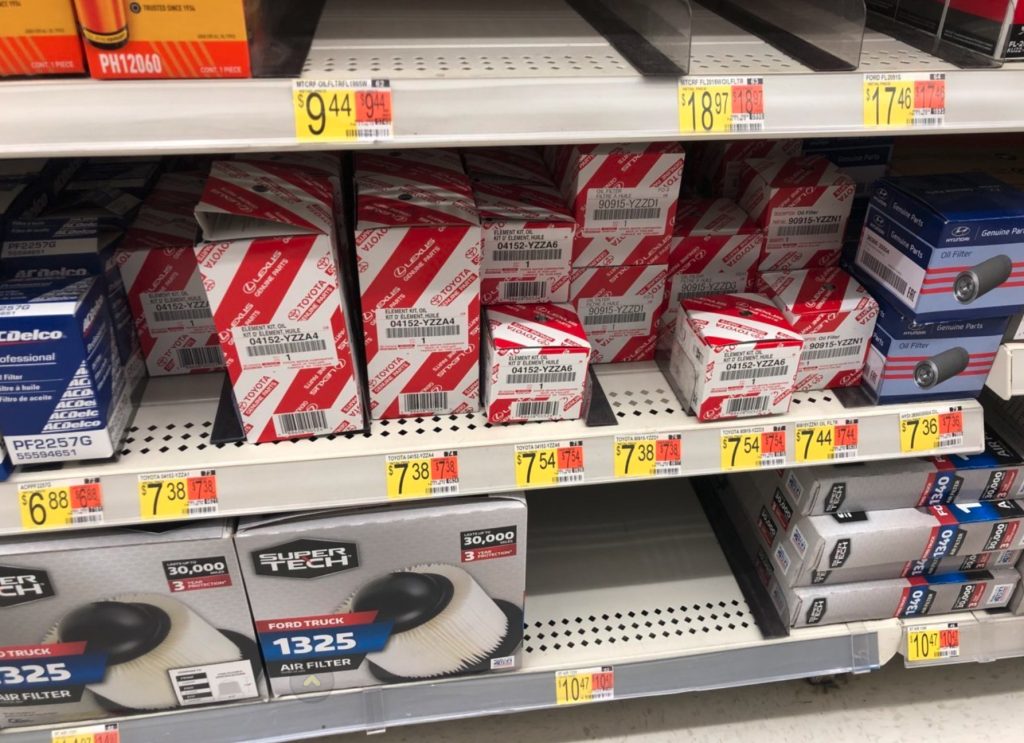
Personally, I have always subscribed to the 5000-mile oil changes with the recommended oil grade viscosity with a high-end-premium brand oil and filter, which means the best synthetic oil I can buy with the reviews of all the cool moly’s and additives coupled with a high mileage, premium fabric/medium filter. Makes sense, right? Buy the “best” and you’re safe. But as Lee Corso will tell you…..not so fast…..here’s some inside baseball hot takes I got from Lake.
Lake enlightened me that when an oil filter says it’s high mileage or lasts 25,000 miles, the reality of its best-case use is a bit confusing. Meaning, one must visualize the fabric/medium of the high mileage oil filter in terms of a strainer or colander. The holes are already quite large to begin with, and as more oil and sediment pass through the filter fabric, the larger holes become smaller. Thus, this expensive or “high-end 25,000-mile filter” is really only becoming efficient/effective at filtering oil until around 10,000 miles or so.
But, if you’re discarding this high mileage oil filter at 5,000 miles (like this dummy does) you’re not only wasting money on the perceived “premium” filter, but its barely begun to do its job, at the beginning or end of its life, when compared to a “regular filter” that is meant to be replaced at 5,000 or even 10,000 miles. My mind was blown. Damn, it hurts when you realize you’re such a sucker for marketing gimmicks.
Why Analysis Beats Guesswork
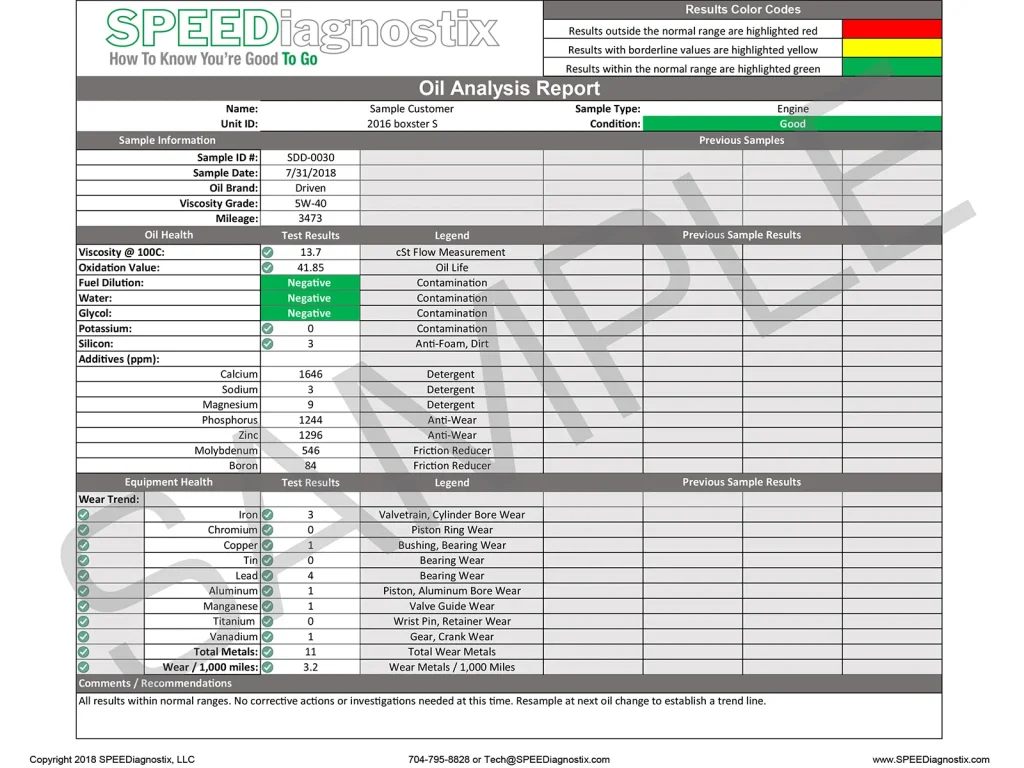
Another insight from Lake was that “high mileage” and “full synthetic” are purely marketing terms created by the oil industry. I was always under the impression that high mileage was basically anything over approximately 85,000 miles. According to Lake, the reality is that once a vehicle’s warranty has expired, it could/should be considered “high mileage”. As a result, it should be treated and maintained accordingly to reflect that designation.
Lake recommends that if you’re starting with a brand-new Toyota truck/engine, stick with the OEM recommendation of viscosity/grade. That is because Toyota used that oil to dyno test the engine and determine the specs. Then, logic should tell you to use the same oil as the manufacturer baseline….apples to apples. Then, the used oil analysis will indicate whether the oil is performing well, taking into account your geographic location and the truck’s driving conditions. That “good job” title is defined on the wear rate of metals broken down in Parts Per Million per 1000 miles, which almost all oil analysis will show. So, anytime a vehicle’s used oil is analyzed and the various metals wear test comes in below 5 PPM, you’re good.
Lake also does not care for the answer to the question, “Which oil is best?” Because, as we read earlier, it depends. But he did say always go with oil that is DEXOS approved. Lake told me, “If you’re stuck at a gas station in the middle of nowhere, try to get the right grade and look for the DEXOS logo.”
So, after all of learning all of this, perhaps some of you will change the process of how to conduct your oil changes. I, for one, will be taking a small sample, made easier with the Fumoto valve I installed, and sending it in for analysis, possibly 500 miles before my next oil change. I am interested to see what I discover, especially now that I realize how important and easy making a data-driven decision actually is.
Final Thoughts: Data Over Hype
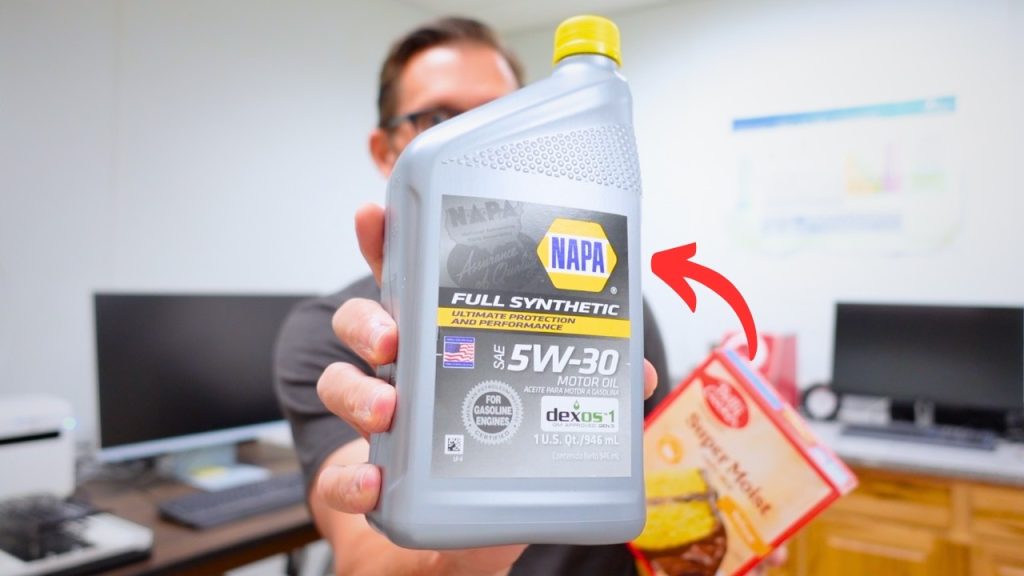
I want to thank Lake Speed Jr. for taking the time to enlighten me and for his patience in dealing with my rudimentary questions. I cannot recommend Lake’s YouTube channel enough. He recommends watching his curated playlist titled “Motor Oil Geek Essentials”. And further demonstrating Lake’s objectivity, it is not a highlight reel of his greatest hits, but rather what he feels is a good foundation for understanding his scientific approach to motor oil.
Lake’s company, SPEEDiagnostix, also prides itself on a more sophisticated analysis than the competition by utilizing the same parameters used for Formula 1 and NASCAR. He also personally reviews each oil analysis and promises a quick response every time.
Thanks for reading. Be kind to yourself and others. The world needs more of it.

Good read, Is Toyota oil dexos ? Which I believe Dexos 1 and Dexos 2 are GM hybrids. They contain additives above and beyond the normal level.
appreciate the effort that went into this article.
now I feel like a schmuck, well done!